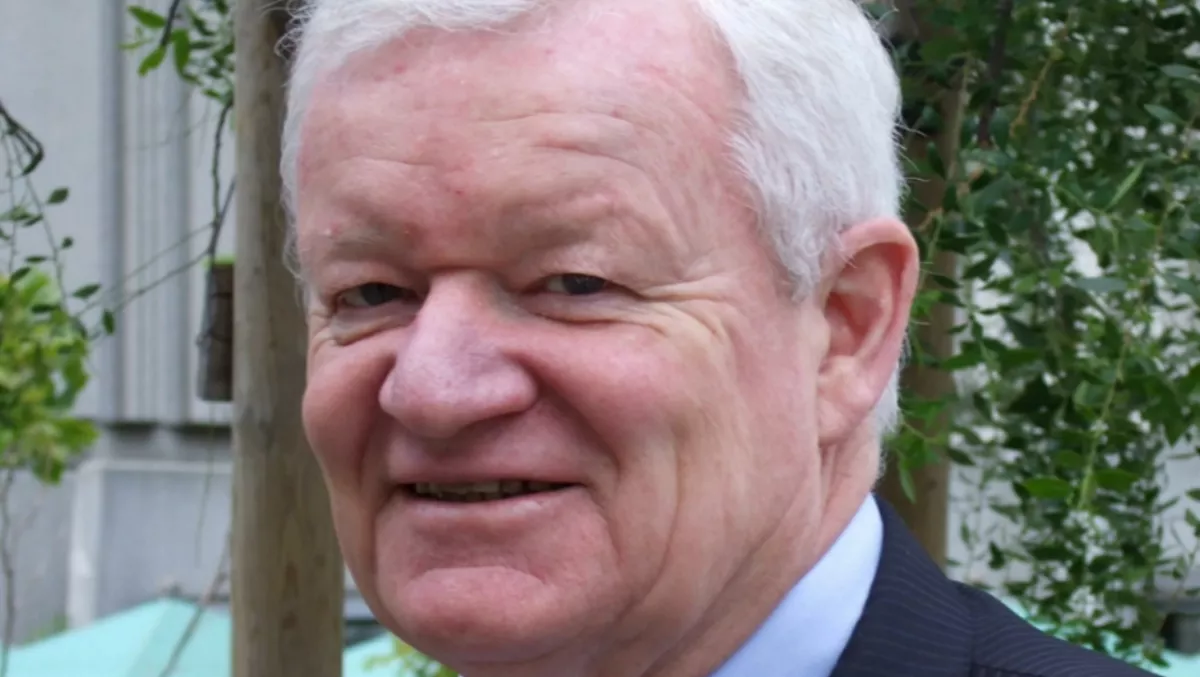
Interview: Understanding the bleeding edge to do business at the cutting edge
Richard Cousins is a strategist. With over fifty years of experience in IT, Richard has been on the board of over 20 organisations and has helped build 7 tech-startups. In 2002, he co-founded CommandHub, of which he is also Chairman. Since January, he has also been the Chairman of ProTECHted Solutions.
"I was working with companies like IBM during the mid to late 90s, building internet strategies. In the early 2000s after 9/11, holes started being cut, like Swiss cheese, through firewalls to grant people access because they were travelling or working from home. We had the idea of providing a means of securing that material.
CommandHub is an innovation solution focused on providing end-to-end security for sensitive information. Richard's focus expands far beyond technology to the importance of human behaviour on cybersecurity and the nature of disruptive change.
Having been at the forefront of mainframes, minis, the PC, the internet, mobile and now cybersecurity, Richard offers unparalleled perspective on the shifting landscape of technological development. Robin Block sat down with Richard to discuss the future of cybersecurity and the change technology can bring to the world.
How would you describe what you do?
Richard: If I had a specialty it would be putting technology in perspective. I think the important question is less — 'how does it work?' — and more — 'how is it going to be used and where is it going?' I have always been attracted to new technology and work to understand the bleeding edge to effectively do business on the cutting edge. My interest is the latest technology developments and how they may actually solve real world problems.
Technology itself is often overhyped. Fuel injection, for example, was all the rage in the 1950s. It did come to dominate the automotive industry — and most customers didn't care. It didn't particularly impact how the customer interacted with a car although it did make vehicles more reliable. Blockchain is a technology that is a bit like fuel injection. It's a better way of doing things — it provides more secure transactions — but it doesn't change what you do.
Compare that to the iPhone or iPod — those changed how people made phone calls and how music was delivered. Those were far bigger game changers than blockchain. People like Steve Jobs and Elon Musk are visionaries because they go beyond the technology. They looked at how the customer would use the technology. My role is to remind people that despite all the hype, the technology itself is not that important — what is important is how it gets used.
Where do you see the state of cybersecurity — what are the important developments?
Richard: The most important developments in cybersecurity come down to business process control — not firewalls, ransomware or anti-virus. There has been a lot of focus on what I call front-door breaches. However, the more pressing issue is breaches through the back-door. It is not uncommon for a company to be compromised and for the attacker to do nothing with the data. They can sit on that breach for years simply to gain ongoing information that will only be of value later.
In Australia, and elsewhere, nearly everyone and their dog has renamed whatever they had as 'cybersecurity'. It is the same thing that happened 10 years ago with 'cloud'. I believe the market is confused. Strategists are only just starting to work out that, as with everything, you can't be all things to all people. As with mobile apps, the pace of development has led to innovation, but it also allows people to bring out apps that are neither new nor improved and just say they are because they look different. The difficulty, for everyone, is figuring out which ones really work.
There is a tendency to just upgrade existing technology, whereas in many cases what is needed is a rethinking of business processes. We need to look at what part technology can play in that change. However, technology alone cannot solve the problem. The confusion in the market is unfortunate, but it is more or less just a facet of fast-paced technological change. That is happening everywhere.
What is on your horizon — what are you excited about?
Richard: For me, I am not excited about any particular piece of technology — what excites me is the pace of development and the impact that might have on how we do things. Tesla is now worth more than Ford — and that is going to impact the automotive industry. I think the change that needs to happen is that more people need to gain a better understanding of technological applications.
From a cyber perspective, for example, people often state that the answer is to put technical people on boards. I think this is about as relevant as the old requirement of having a practicing lawyer on the board. In both cases, what boards need is a broad perspective. You need people who understand the impact of technology, understand the law, understand risk — but you don't necessarily need to understand the ins-and-outs of how all that technically works.
You need to be able to have an intelligent conversation with different people who do, and then put that all in perspective. To me, I bring the ability to put things in perspective — I can't sit here and talk to you about how an electric motor works but I can sure point to many instances where we take advantage of such developments. We need good people to build technology, but things really change when someone realises how to use that technology to make business, and the world, a better place.

